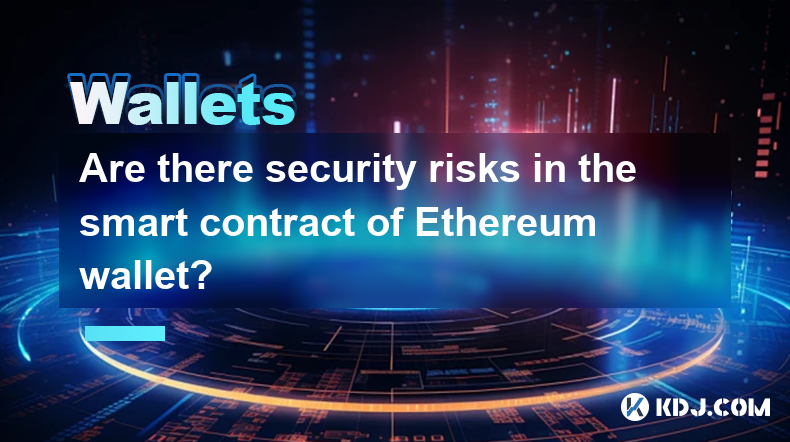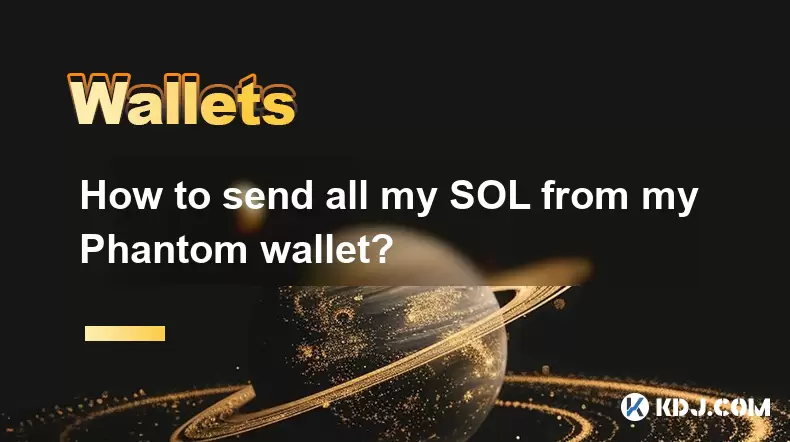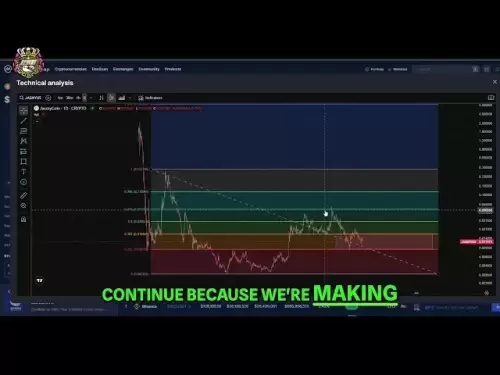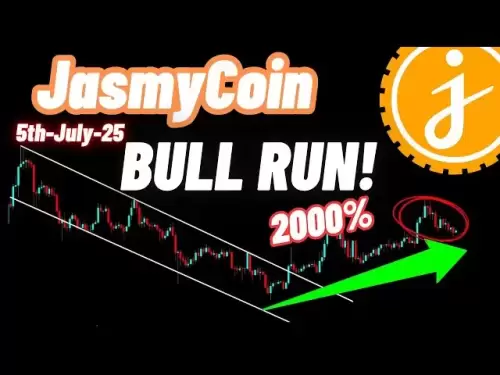-
 Bitcoin
Bitcoin $108,250.0992
0.11% -
 Ethereum
Ethereum $2,515.9404
0.03% -
 Tether USDt
Tether USDt $1.0003
0.00% -
 XRP
XRP $2.2166
-0.19% -
 BNB
BNB $656.5904
0.29% -
 Solana
Solana $147.4122
-0.58% -
 USDC
USDC $1.0000
-0.01% -
 TRON
TRON $0.2830
0.06% -
 Dogecoin
Dogecoin $0.1641
0.27% -
 Cardano
Cardano $0.5739
-0.19% -
 Hyperliquid
Hyperliquid $39.1463
-0.11% -
 Sui
Sui $2.8882
-0.02% -
 Bitcoin Cash
Bitcoin Cash $487.6428
0.31% -
 Chainlink
Chainlink $13.2097
0.07% -
 UNUS SED LEO
UNUS SED LEO $9.0308
0.10% -
 Avalanche
Avalanche $17.8608
0.13% -
 Stellar
Stellar $0.2379
-0.06% -
 Toncoin
Toncoin $2.7400
-0.39% -
 Shiba Inu
Shiba Inu $0.0...01144
-0.36% -
 Litecoin
Litecoin $87.5467
0.66% -
 Hedera
Hedera $0.1538
0.22% -
 Monero
Monero $315.5479
0.36% -
 Dai
Dai $1.0000
0.00% -
 Polkadot
Polkadot $3.3523
-0.71% -
 Ethena USDe
Ethena USDe $1.0003
0.01% -
 Bitget Token
Bitget Token $4.3960
-1.03% -
 Uniswap
Uniswap $7.2663
4.19% -
 Aave
Aave $272.8619
2.04% -
 Pepe
Pepe $0.0...09676
-0.18% -
 Pi
Pi $0.4586
-2.87%
Are there security risks in the smart contract of Ethereum wallet?
Ethereum smart contract vulnerabilities, like reentrancy and arithmetic errors, can lead to fund theft. Auditing, secure coding practices, and using reputable wallets are crucial for mitigation; users should exercise caution and verify contract addresses before interacting.
Mar 20, 2025 at 01:00 pm

Key Points:
- Ethereum smart contracts, while powerful, are susceptible to various security vulnerabilities.
- These vulnerabilities can be exploited by malicious actors to steal funds or compromise user data.
- Understanding common vulnerabilities and best practices for secure smart contract development is crucial.
- Auditing smart contracts before deployment is a vital step in mitigating risks.
- Users should exercise caution when interacting with smart contracts and only use reputable and well-vetted applications.
Are There Security Risks in the Smart Contract of Ethereum Wallet?
Yes, there are inherent security risks associated with Ethereum smart contracts used in wallets. While smart contracts offer automation and programmability, their complex nature introduces vulnerabilities that malicious actors can exploit. These risks aren't unique to any specific wallet but are a fundamental aspect of smart contract technology on the Ethereum blockchain. Understanding these risks is crucial for users and developers alike.
Common Vulnerabilities:
Several common vulnerabilities plague Ethereum smart contracts, posing significant security threats to wallets utilizing them. These vulnerabilities often stem from coding errors or design flaws. Let's explore some of the most prevalent ones.
- Reentrancy: This occurs when a malicious contract calls back into the original contract before the first call completes, potentially leading to unintended state changes and fund depletion. Sophisticated attacks can manipulate the execution flow to drain funds from the victim's wallet.
- Arithmetic Overflow/Underflow: Improper handling of arithmetic operations can lead to unexpected results, particularly with large numbers. This can be exploited to manipulate balances or alter the contract's logic, resulting in the loss of funds.
- Gas Limit Issues: Insufficient gas allocation for a transaction can lead to the transaction failing mid-execution. This leaves the contract in an unpredictable state and might cause irreversible losses of funds in the user's wallet.
- Denial of Service (DoS): Maliciously crafted transactions can consume excessive resources, making the contract unusable for legitimate users. This can effectively lock users out of their wallets or prevent them from performing essential functions.
Mitigation Strategies:
Developers can employ various strategies to mitigate these risks and improve the security of Ethereum smart contracts within wallets. These strategies are crucial for preventing exploits and ensuring user safety.
- Formal Verification: This rigorous method mathematically proves the correctness of the smart contract code, identifying potential vulnerabilities before deployment. While resource-intensive, it offers a high degree of assurance.
- Thorough Auditing: Independent security audits by experienced professionals are essential. These audits scrutinize the code for vulnerabilities and weaknesses, offering a critical layer of defense against attacks.
- Secure Coding Practices: Adhering to best practices in Solidity (the primary language for Ethereum smart contracts) is vital. This includes using established libraries, avoiding common pitfalls, and rigorously testing the code.
- Input Validation: Thoroughly validating all user inputs is crucial to prevent malicious data from affecting the contract's logic and potentially causing unexpected behavior.
- Access Control: Implementing robust access control mechanisms restricts unauthorized access to sensitive functions and data within the smart contract, reducing the risk of malicious manipulation.
- Bug Bounties: Offering bug bounties incentivizes security researchers to identify vulnerabilities, allowing developers to proactively address them before they can be exploited.
User Precautions:
Users should also take precautions to protect themselves from vulnerabilities in smart contracts used in their wallets. These precautions are just as crucial as the development-side mitigations.
- Use Reputable Wallets: Only use wallets developed by reputable companies or projects with a strong track record of security. Avoid using unknown or poorly reviewed wallets.
- Verify Contract Addresses: Always verify the contract address of any smart contract you interact with. Malicious actors may create fake contracts with similar names or interfaces to deceive users.
- Review Smart Contract Code: If possible, review the smart contract code before interacting with it. While this requires technical knowledge, it can help identify potential vulnerabilities.
- Use a Hardware Wallet: Hardware wallets provide an extra layer of security by storing your private keys offline, protecting them from malware and other online threats.
- Stay Updated: Keep your wallet software and related dependencies updated to benefit from the latest security patches and bug fixes.
Common Questions and Answers:
Q: Can I recover my funds if my Ethereum wallet smart contract is compromised?
A: Recovery depends on the nature of the compromise. If funds were stolen through a vulnerability in the smart contract itself, recovery is often difficult or impossible. However, if the compromise involved compromised private keys, recovering funds may be possible depending on the wallet's recovery mechanisms.
Q: How often should I audit my smart contract?
A: The frequency of audits depends on the complexity of the contract and its level of exposure. Regular audits, potentially after significant code changes or before major updates, are recommended.
Q: Are all Ethereum smart contracts insecure?
A: No, not all Ethereum smart contracts are insecure. However, the potential for vulnerabilities exists, and thorough development practices and security audits are crucial for mitigating these risks. Many well-developed contracts function securely and reliably.
Q: What is the role of insurance in protecting against smart contract vulnerabilities?
A: Smart contract insurance is emerging as a method to mitigate financial losses resulting from vulnerabilities. These insurance policies cover losses stemming from exploits or bugs in the code, offering an additional layer of security for users and developers. However, coverage varies widely, and it's essential to understand the terms and conditions of any insurance policy.
Disclaimer:info@kdj.com
The information provided is not trading advice. kdj.com does not assume any responsibility for any investments made based on the information provided in this article. Cryptocurrencies are highly volatile and it is highly recommended that you invest with caution after thorough research!
If you believe that the content used on this website infringes your copyright, please contact us immediately (info@kdj.com) and we will delete it promptly.
- XRP's Upside Potential: Analysts Bullish Despite Accessibility Concerns
- 2025-07-06 10:30:13
- Dubai Hotelier, Crypto Scam, and an Arrest in India: A Tangled Web
- 2025-07-06 10:30:13
- Bitcoin's Calm Before the Storm: ETF Inflows Surge Amidst Low Volatility
- 2025-07-06 10:50:13
- Crypto Capital Inflows: Why Qubetics, Ethereum, and SUI are Investment Coins to Watch
- 2025-07-06 10:50:13
- Bitcoin, Crypto, and Polymarket: Decoding the Crystal Ball
- 2025-07-06 11:15:22
- XRP Price Prediction: Can XRP Break the Weekly Downtrend?
- 2025-07-06 11:00:13
Related knowledge

How to cancel a pending transaction in Phantom wallet?
Jul 03,2025 at 07:21pm
Understanding Pending Transactions in Phantom WalletA pending transaction in the Phantom wallet occurs when a user initiates a transfer or interaction with the Solana blockchain, but it hasn't yet been confirmed by the network. This can happen due to various reasons such as low transaction fees, network congestion, or incorrect gas settings. It's import...

How to see the estimated value of my tokens in Phantom wallet?
Jul 04,2025 at 12:21am
What is Phantom Wallet?Phantom wallet is one of the most popular cryptocurrency wallets designed for the Solana blockchain. It allows users to store, send, receive, and manage various tokens built on Solana, including SPL tokens and NFTs. The wallet offers a user-friendly interface, making it accessible for both beginners and advanced users in the crypt...

How to lock my Phantom wallet extension?
Jul 03,2025 at 11:14am
What Is the Phantom Wallet and Why Lock It?The Phantom wallet is a popular non-custodial cryptocurrency wallet designed for interacting with the Solana blockchain. Supporting both browser extensions and mobile apps, Phantom allows users to store, send, receive, and stake SOL tokens, as well as interact with decentralized applications (dApps). Securing y...

Does Phantom wallet offer two-factor authentication (2FA)?
Jul 03,2025 at 09:00am
Understanding Phantom Wallet and Its Security FeaturesPhantom wallet is a widely used non-custodial cryptocurrency wallet that supports the Solana blockchain. It allows users to store, send, receive, and interact with decentralized applications (dApps) seamlessly. As security is a top priority for any crypto wallet user, security features like two-facto...

How to send all my SOL from my Phantom wallet?
Jul 06,2025 at 10:00am
Preparing to Send SOL from Your Phantom WalletBefore initiating any transaction, it is crucial to ensure that your Phantom wallet is fully set up and connected to the correct network. Phantom supports multiple networks, but for sending SOL, you must be on the Solana blockchain. Confirm this by checking the network indicator in the top-right corner of th...

What is "rent" on Solana and how does it affect my Phantom wallet?
Jul 02,2025 at 08:35pm
Understanding 'Rent' on SolanaIn the context of Solana, the term 'rent' refers to a storage fee that users pay for maintaining data on the blockchain. Unlike Ethereum, where storage costs are paid once via gas fees during contract deployment, Solana implements a recurring cost model to ensure efficient usage of network resources. This means that any acc...

How to cancel a pending transaction in Phantom wallet?
Jul 03,2025 at 07:21pm
Understanding Pending Transactions in Phantom WalletA pending transaction in the Phantom wallet occurs when a user initiates a transfer or interaction with the Solana blockchain, but it hasn't yet been confirmed by the network. This can happen due to various reasons such as low transaction fees, network congestion, or incorrect gas settings. It's import...

How to see the estimated value of my tokens in Phantom wallet?
Jul 04,2025 at 12:21am
What is Phantom Wallet?Phantom wallet is one of the most popular cryptocurrency wallets designed for the Solana blockchain. It allows users to store, send, receive, and manage various tokens built on Solana, including SPL tokens and NFTs. The wallet offers a user-friendly interface, making it accessible for both beginners and advanced users in the crypt...

How to lock my Phantom wallet extension?
Jul 03,2025 at 11:14am
What Is the Phantom Wallet and Why Lock It?The Phantom wallet is a popular non-custodial cryptocurrency wallet designed for interacting with the Solana blockchain. Supporting both browser extensions and mobile apps, Phantom allows users to store, send, receive, and stake SOL tokens, as well as interact with decentralized applications (dApps). Securing y...

Does Phantom wallet offer two-factor authentication (2FA)?
Jul 03,2025 at 09:00am
Understanding Phantom Wallet and Its Security FeaturesPhantom wallet is a widely used non-custodial cryptocurrency wallet that supports the Solana blockchain. It allows users to store, send, receive, and interact with decentralized applications (dApps) seamlessly. As security is a top priority for any crypto wallet user, security features like two-facto...

How to send all my SOL from my Phantom wallet?
Jul 06,2025 at 10:00am
Preparing to Send SOL from Your Phantom WalletBefore initiating any transaction, it is crucial to ensure that your Phantom wallet is fully set up and connected to the correct network. Phantom supports multiple networks, but for sending SOL, you must be on the Solana blockchain. Confirm this by checking the network indicator in the top-right corner of th...

What is "rent" on Solana and how does it affect my Phantom wallet?
Jul 02,2025 at 08:35pm
Understanding 'Rent' on SolanaIn the context of Solana, the term 'rent' refers to a storage fee that users pay for maintaining data on the blockchain. Unlike Ethereum, where storage costs are paid once via gas fees during contract deployment, Solana implements a recurring cost model to ensure efficient usage of network resources. This means that any acc...
See all articles

























































































